For the fifth part of our series on debates across the world, I zoomed into the conversations inside American farming communities with Jesse Hirsch, editor of Ambrook Research, a U.S.-based farming magazine whose readers are primarily farmers. Everyone from row crop farmers to sustainably-minded smallholders in Vermont. We explored the textured world of U.S. agriculture; from who farmers voted for to regenerative farmers who won’t use the words 'climate change'.
There’s a lot of debate in the U.S. right now and food and agriculture is central to that; tariffs, Make America Healthy Again and the role of migrant workers in farming. For the fifth part of our series on debates across the world, I zoomed into the conversations inside American farming communities with Jesse Hirsch, editor of Ambrook Research, a U.S.- based farming magazine whose readers are primarily farmers. Everyone from row crop farmers to sustainably-minded smallholders in Vermont. They’re a vocal and engaged readership – Jesse can get up to 100 emails in response to stories.
We explored the textured world of U.S. agriculture; from who farmers voted for to regenerative farmers who won’t use the words climate change. We also talked about Ambrook Research's new Debates series, giving space to two diverging perspectives on a difficult subject. This kicked off last week with two essays with very different takes on the Farm Bureau, America’s largest farming organisation, with six million members.
For me, it was a lesson in different ways of hosting contentious debates. I enjoyed how Ambrook Research contrasted two different perspectives without pitting them against one another. With no need to defend themselves, there was no emotion riding on who was winning and in my view, it gave rise to a very productive debate. Interestingly, Jesse said there were much fewer emails that week.
This is part of TABLE's newsletter series on food system debates across the world. Click here to read about West Africa, Latin America and Southeast Asia. Next up is Australia, with food systems professor Rachel Carey. Click here to sign up for FODDER, TABLE's fortnightly newsletter with expert interviews and the latest in food system research, jobs and events.
Very best,
Jack Thompson, editor of FODDER
Inside the grain silo with Ambrook Research
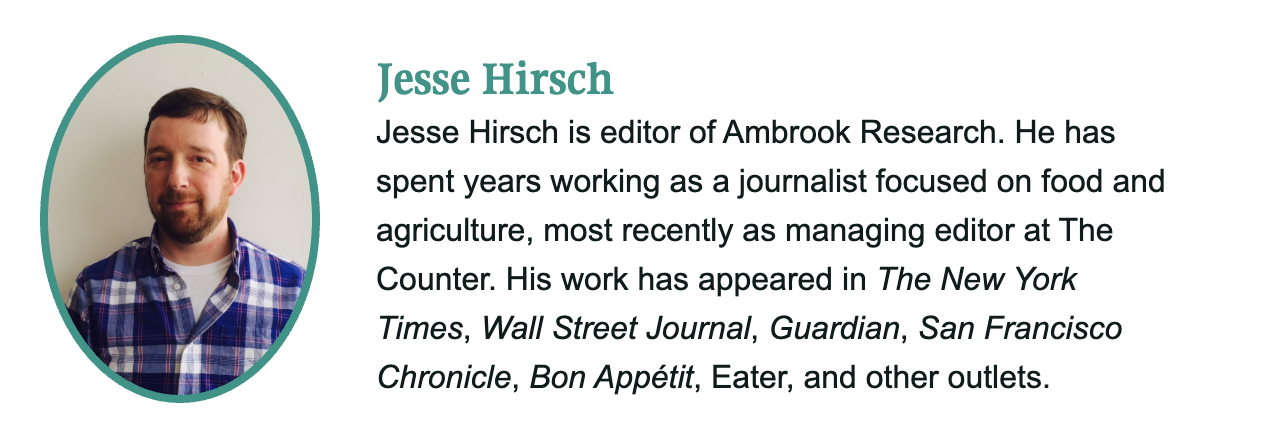
TABLE: For those who don’t know Ambrook Research, can you tell us a bit about it and who reads it?
Jesse Hirsch: Ambrook, the parent company, is four years old, and when they first started out, their mission was clear, they wanted to make it easier for farmers to do accounting and bookkeeping stuff. As a tech company still making a name for itself in the agriculture space, Ambrook wanted to continue to earn trust by launching an industry publication. So, Ambrook Research was an experiment when it first started out. They wanted to cover more unusual areas, undercovered issues in agriculture to add something of value to farmers.
Roughly 75 percent of our readers work in food and agriculture. The other 25 percent, I loosely refer to as “farmers’ market shoppers” – they’re curious about where they’re food comes from, the new innovations and sustainability, but they don’t have a deep breath of agriculture knowledge per se.
We have a very vocal readership. I think that getting flak from all sides is a sign that maybe you’re doing your job right; whether it's a small sustainable farmer in Vermont, or a 3000-acre row crop farmer in Nebraska.
TABLE: What are some of the contentious issues that you see?
JH: Honestly politics is enormous right now. It's the big elephant in the room. We did a story before the election. In one of my newsletters last fall I said, ‘Hey, we're curious who you're gonna vote for because we feel like this is a consequential election for agriculture and we want to know what you're going to vote for and why.’ We got a lot of responses.
It was a fifty-fifty split on who was going to vote for Trump and who was going to vote for Harris.
The texture of the perspectives were amazing. There were themes and patterns, but there was also such a range of reasons; from trade obstructionism, to this USA-first approach, and even wanting to be listened to more. Or, super-specific issues like the 'Environmental Protection Agency is regulating this particular pesticide, which is very useful to me'.
TABLE: Why did you start this series called Debates?
JH: I got an interesting essay pitch from an agriculture grad student in an area that he had studied extensively; the Farm Bureau [one of America’s largest lobby groups with six million active members], in this broader historical sense. His pitch was that the Farm Bureau was essentially an organization that does not work for most farmers, it works for big agribusiness. Whenever they're lobbying, it's on behalf of the large wealthier farmers.
It was a pretty scathing piece, I have to say. So, I reached out to someone that I know who was the head of the New York State Farm Bureau, to write an essay on the most valuable things the Farm Bureau brings.
[This is the first in a series where two writers express differing views on the same topic. Next up is a debate between journalist Michael Grunwald and professor Tim Bowles on making factory farming more efficient vs agroecology. Coincidentally, Michael talked about this very subject in the Feed podcast last week.]
Rather than the Farm Bureau being driven by big agricultural interests, the interesting nuance we found was that the things that they were lobbying for were driven by the voices of a lot of farmers. Maybe to the writer [of the piece critical of the Farm Bureau], it wasn’t a good idea to lobby against climate change [as the Farm Bureau did for many years] and tighter methane controls, but actually this stance was a democratic process, reflected in the votes of six million Farm Bureau members.
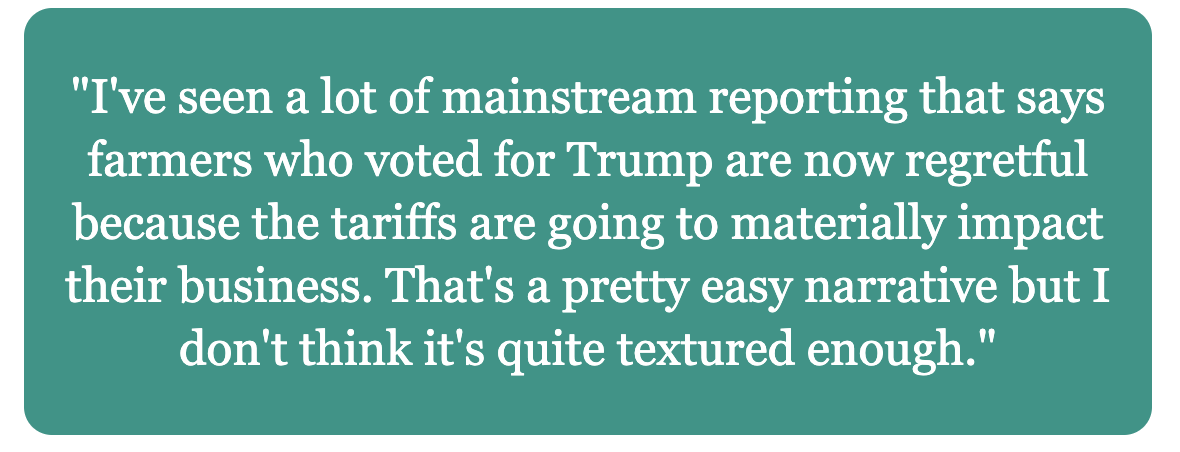
TABLE: So the two pieces were done independently, rather than as a response to one another?
JH: I felt like it would be better if they weren't going directly head to head. There's this whole debate culture and it ends up being about rhetorical flair as much as the actual issues. Like, ‘How can I trip up somebody? I found an inaccuracy here and I'm going to pull at that thread and unravel their entire thing.’ Even if their overall arguments are pretty sound.
I wanted to see a presentation of ideas instead of just defending your opinion. The [feedback to the fomat from readers] went really well. In fact, nobody seemed upset in the responses that we got.
[I’d love to know what you think: Does this suggest that readers are satisfied with their perspective being represented and no need to think any deeper about their beliefs? Or is there value in the presentation of ideas without defense and ego? Let me know here.]
TABLE: This might be obvious, but how do you think the experiences and backgrounds of the writers shape the two different perspectives?
JH: I think the first writer did a great job but I think it might be the fact he was not a farmer himself, and had never been a Farm Bureau member. Studying it academically is different from being in it. He made a very reasonable argument for someone on the outside.
I also wonder on the flip side what blind spots would be held by the writer in the Farm Bureau. I think she wrote a very reasonable piece on what's good about it, but is it more difficult to see damage that has been done by an organisation that you work for because you can't pull back the lens as you're too deeply involved in it.
TABLE: How does Ambrook Research's coverage differ to the mainstream coverage of food and agriculture?
JH: Right now, agriculture has a huge presence in the mainstream media because it’s so filled up with tariffs. I've seen a lot of mainstream reporting that says farmers who voted for Trump are now regretful because the tariffs are going to materially impact their business. That's a pretty easy narrative and I can see the appeal to that but I don't think it's quite textured enough.
When we did a piece on the tariffs, we talked to all the major trade groups – soybeans, beef, dairy – and it was amazing because there was a wide range of views. The beef people were all like, 'we love the tariffs' [because it helps U.S. beef compete against imports].
We did another story that encapsulates the push and pull of being in the middle of an area that can be highly controversial but also nuanced. It was about farmers who were embracing regenerative agriculture practices; improving their soil health for instance because they recognised that the world is changing, but did not want to use the word climate change because it's so culturally loaded. But at the same time because they were working farmers they saw that things were happening on their farm that needed to be addressed while not being willing to actually use certain language because they thought that was coded as something progressive. To me, that story reflects the kind of the tightrope that we are walking at Ambrook Research.
TABLE: What are going to be the defining farming issues this year, in your opinion?
JH: I'm sure we're going to cover farm labor, because a lot of American farming relies on an immigrant workforce. As you know, so many people are being deported. [Since this interview, the Trump administration has continued to arrest, detain and deport immigrants, including those with legal status, despite judicial rulings to the contrary that have cited violations of human and legal rights by U.S. Immigration and Customs Enforcement (ICE). Read more here.] This is another area where it's culturally pro Trump, but also materially relying upon this workforce that is disappearing. Where do [farmers who rely on migrant workers] come down on that? Are they changing your viewpoints? I'm really curious about that and how that's going to play out.
This is part of TABLE's newsletter series on food system debates across the world. Click here to read about West Africa, Latin America and Southeast Asia. Sign up for FODDER, TABLE's fortnightly newsletter with expert interviews and the latest in food system research, jobs and events. Next up is Australia, with food systems researcher Rachel Carey.
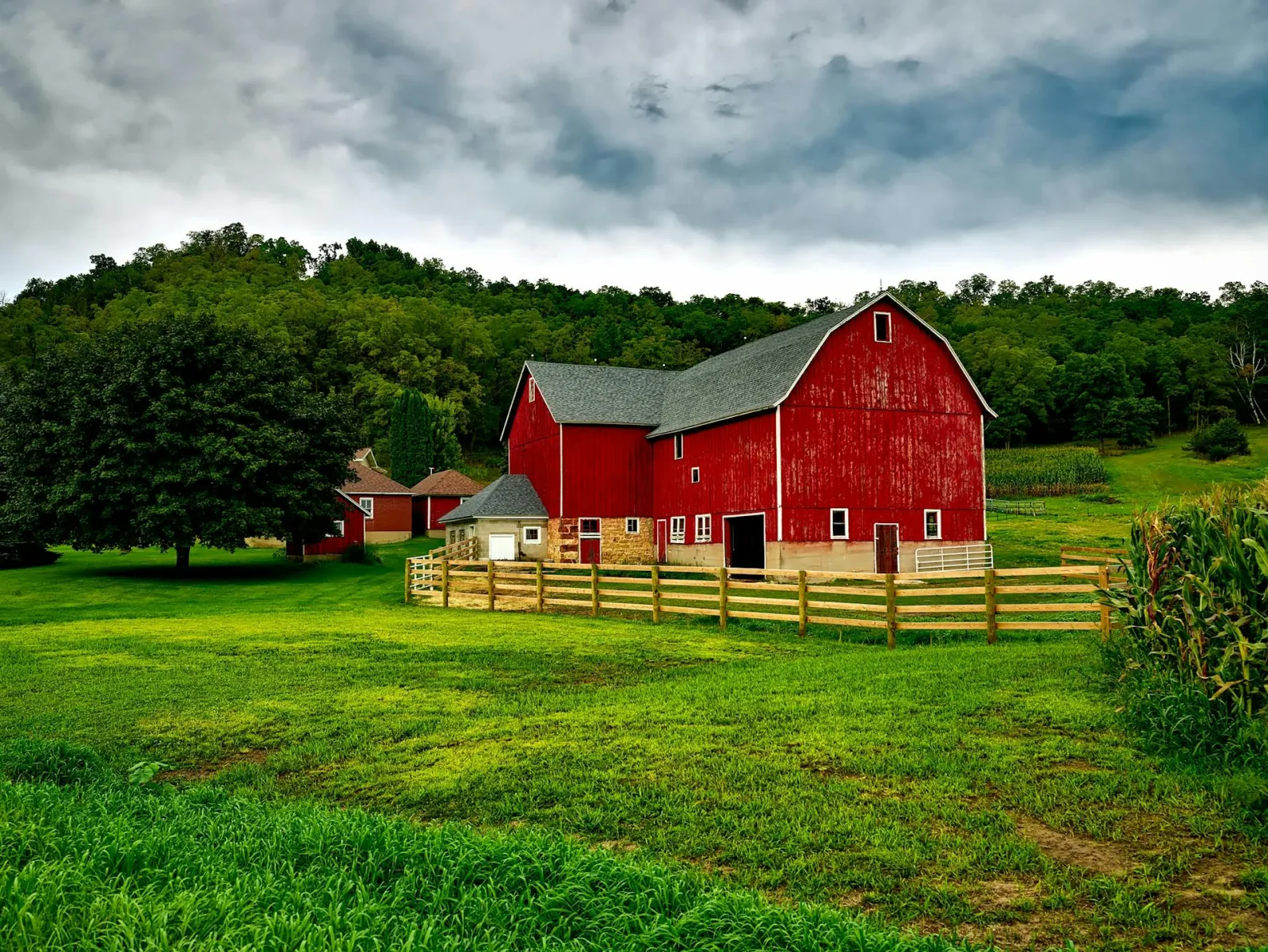
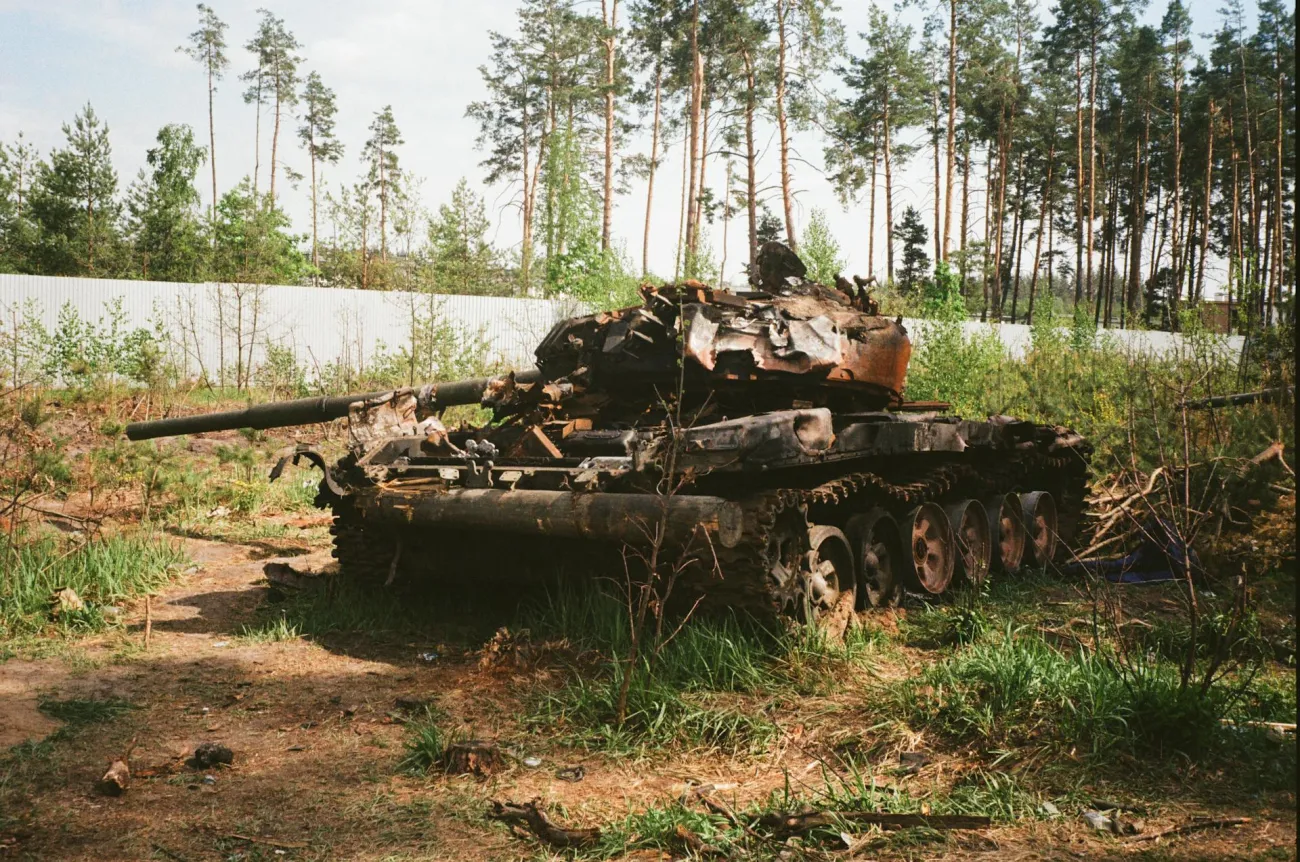
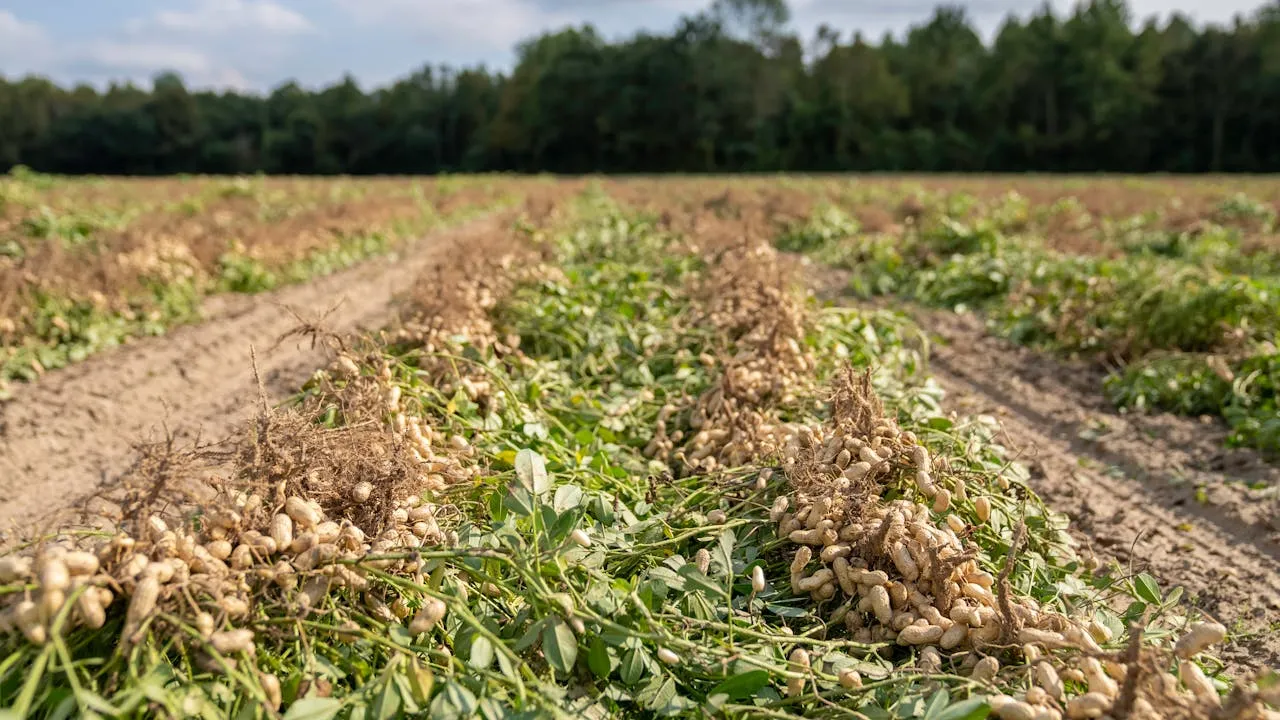

Comments (0)